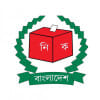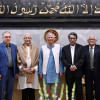Form separate body to redraw constituencies

"Delimitation is my [the EC's] constitutional mandate, and I must retain control over it. If an independent institution handles delimitation, it can set its own timeline. The election might take place, but the delimitation process may not be completed in time."
The Electoral Reform Commission has proposed a new law in line with internationally accepted guidelines, such as maintaining impartiality and ensuring true representation, while demarcating parliamentary constituencies.
The draft law suggests that parliamentary seats in small districts be demarcated based on a standard that maintains an average population difference of 10 percent. For larger districts, like Dhaka and Chattogram, a 15 percent difference is acceptable.
The full report of the reform commission, submitted to the government on February 8, also proposed the establishment of a separate independent authority for the future delimitation of electoral constituencies. Currently, the Election Commission demarcates constituencies as part of its constitutional duty ahead of general elections.
The EC opposed the proposal for a separate body to handle delimitation, as it is one of the most fundamental pre-election tasks outlined in the constitution.
Delimitation refers to the process of defining the boundaries of an electoral district or constituency. It involves determining the geographic area that will be represented by each member of parliament or legislative assembly in a democratic system.
Chief Election Commissioner AMM Nasir Uddin said, "The EC is already an independent body. Creating another one would complicate matters, as the demarcation of constituencies is a constitutional power of the EC. Establishing another authority would contradict the spirit of the constitution.
"I don't know the details, but I've heard they proposed a new law. Delimitation is my [the EC's] constitutional mandate, and I must retain control over it. If an independent institution handles delimitation, it can set its own timeline. The election might take place, but the delimitation process may not be completed in time."
Abdul Alim, a member of the reform commission, argued, "This isn't a question of independence; rather, the constitution has entrusted the Election Commission with a specific responsibility.
"Since this issue is often surrounded by controversy regarding the demarcation process, there is also the risk of political interference. We're proposing a system that would protect the Election Commission from such interference…. The best solution would be for a separate commission to handle this task, ensuring that the EC doesn't bear unnecessary responsibilities or face unfounded accusations."
According to the Delimitation of Constituencies Law, the boundaries of Jatiya Sangsad constituencies should be redrawn based on the population distribution from the latest census, while keeping administrative units intact for convenience.
The EC publishes a preliminary list of redrawn constituencies, and voters are given the chance to file appeals against the proposed boundaries. The EC may finalise the demarcation only after resolving these objections.
EC officials emphasised that the demarcation of parliamentary seats is a complex and technical task, often leading to controversy.
During the process, some constituencies become larger, while others shrink. This results in some parliamentary candidates needing to appeal to new voters, while others lose voters.
The last EC, led by Kazi Habibul Awal, re-demarcated 10 constituencies ahead of the 12th national elections. Prior to that, the KM Nurul Huda-led commission altered the boundaries of 25 constituencies in 2018. The commission under Kazi Rakibuddin Ahmad redrew the boundaries of 87 constituencies in 2013, ahead of the 10th general election, while the ATM Shamsul Huda-led commission made significant changes to 133 constituencies in 2008.
However, following the fall of the Sheikh Hasina-led government, the EC has received objections regarding the 2008 and 2024 demarcation processes. An EC official revealed that while no official initiative has been taken, 240 objections have already been filed against 40 constituencies.
Transparency International Bangladesh, in a report published last May, stated that 198 constituencies had been re-demarcated in recent national elections, which caused political controversy, lawsuits, and legal complications from local residents.
Internationally recognised guidelines suggest that electoral boundaries should be demarcated with an average population difference of no more than five percent.
However, in Bangladesh, the population deviation ranges between 26 and 88 percent. As a result, some constituencies have MPs representing large populations (over 800,000), while others, even in the same district, represent smaller populations (around 300,000), according to the TIB report.
The report also noted that this population gap creates complications in electoral expenditure and other activities on a constituency-by-constituency basis.
The reform commission's draft law proposes that a committee, led by the Chief Election Commissioner (CEC) or another EC official, demarcate constituencies. Other members of the committee should include geographers, statisticians, demographers, urban planners, and EC officials.
During the demarcation, the boundaries of a union parishad or a ward in a city corporation should remain intact.
Abdul Alim further explained that internationally recognised bodies, such as the Commonwealth Secretariat, the Venice Commission, the International Foundation for Electoral Systems, and others, follow widely accepted guidelines.
The reform commission's report highlighted "impartiality" as a key principle, meaning the delimitation process should be managed by an independent and impartial professional body with the relevant expertise.
It also emphasised "representativeness," which ensures that electoral boundaries are drawn to allow constituents to elect candidates who truly represent them.
Furthermore, "equality of voting strength" is another fundamental principle, ensuring that populations in constituencies are as equal as possible, providing voters with an equal voting strength.
The report also mentioned that countries such as India, Nepal, Sri Lanka, Bhutan, the United Kingdom, Canada, Germany, Australia, and New Zealand have separate authorities responsible for demarcating constituencies.
In the UK, with the exception of a few constituencies, each seat has a voter count ranging from 73,000 to 74,000, resulting in a voter deviation of no more than five percent. On average, each constituency in the UK covers approximately 13,000 square kilometres.
Alim noted that India follows a ±10 percent population variation rule when delimiting constituencies.

 For all latest news, follow The Daily Star's Google News channel.
For all latest news, follow The Daily Star's Google News channel. 








Comments